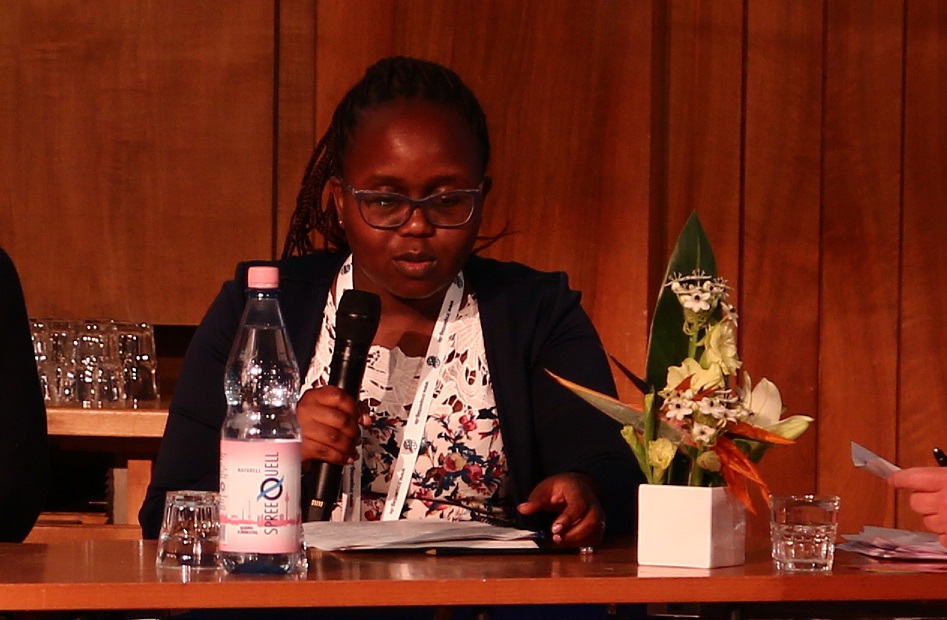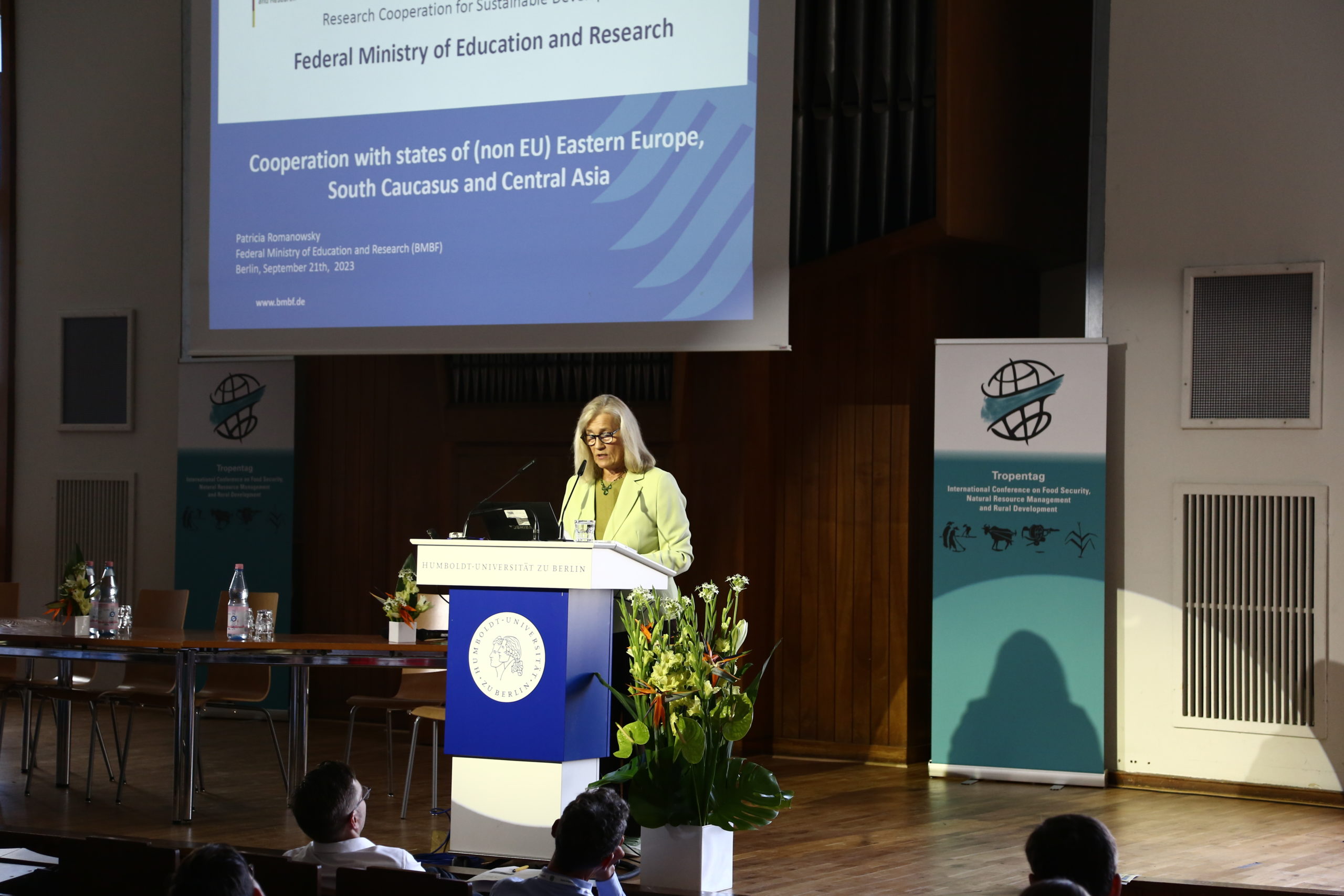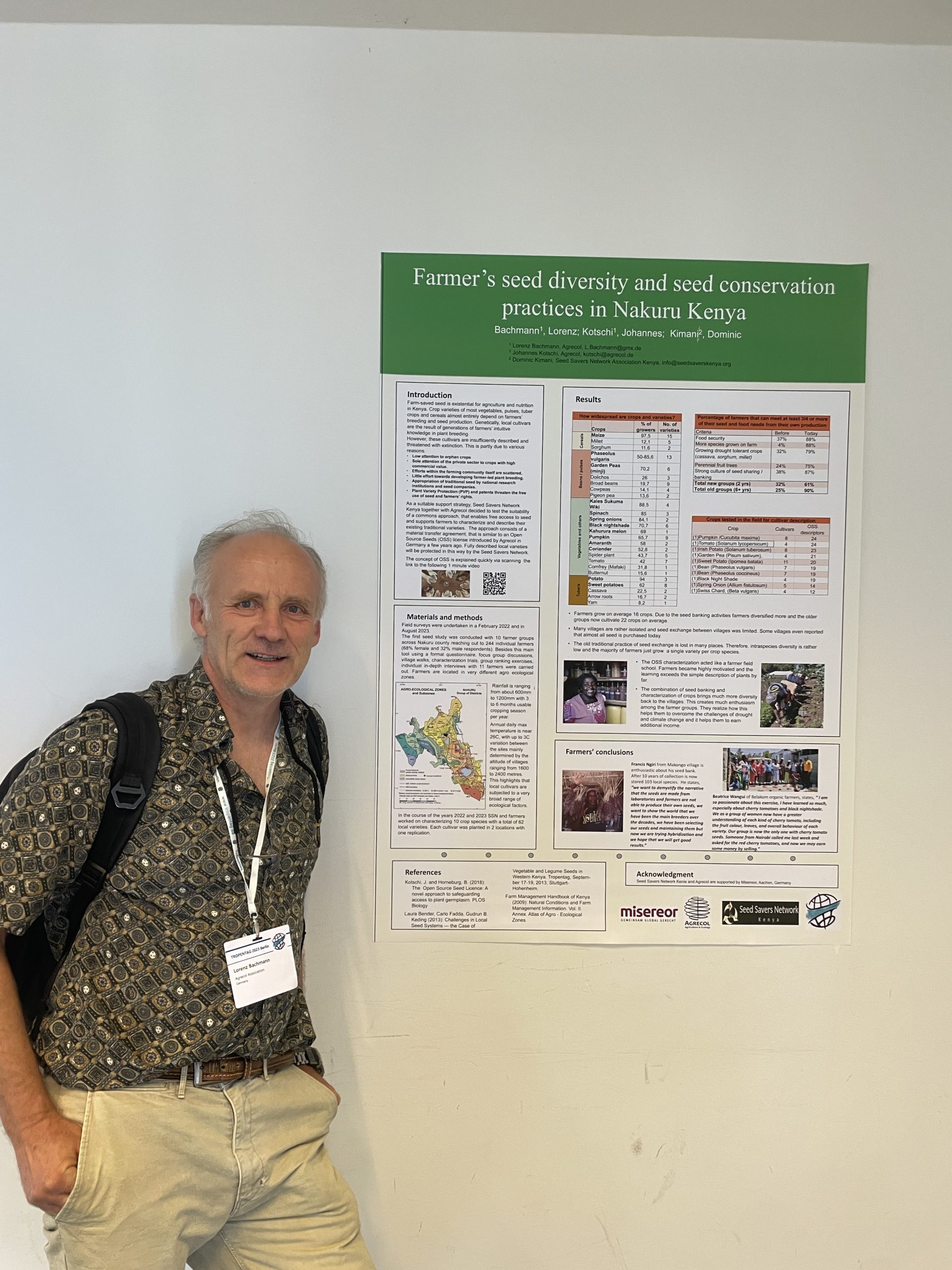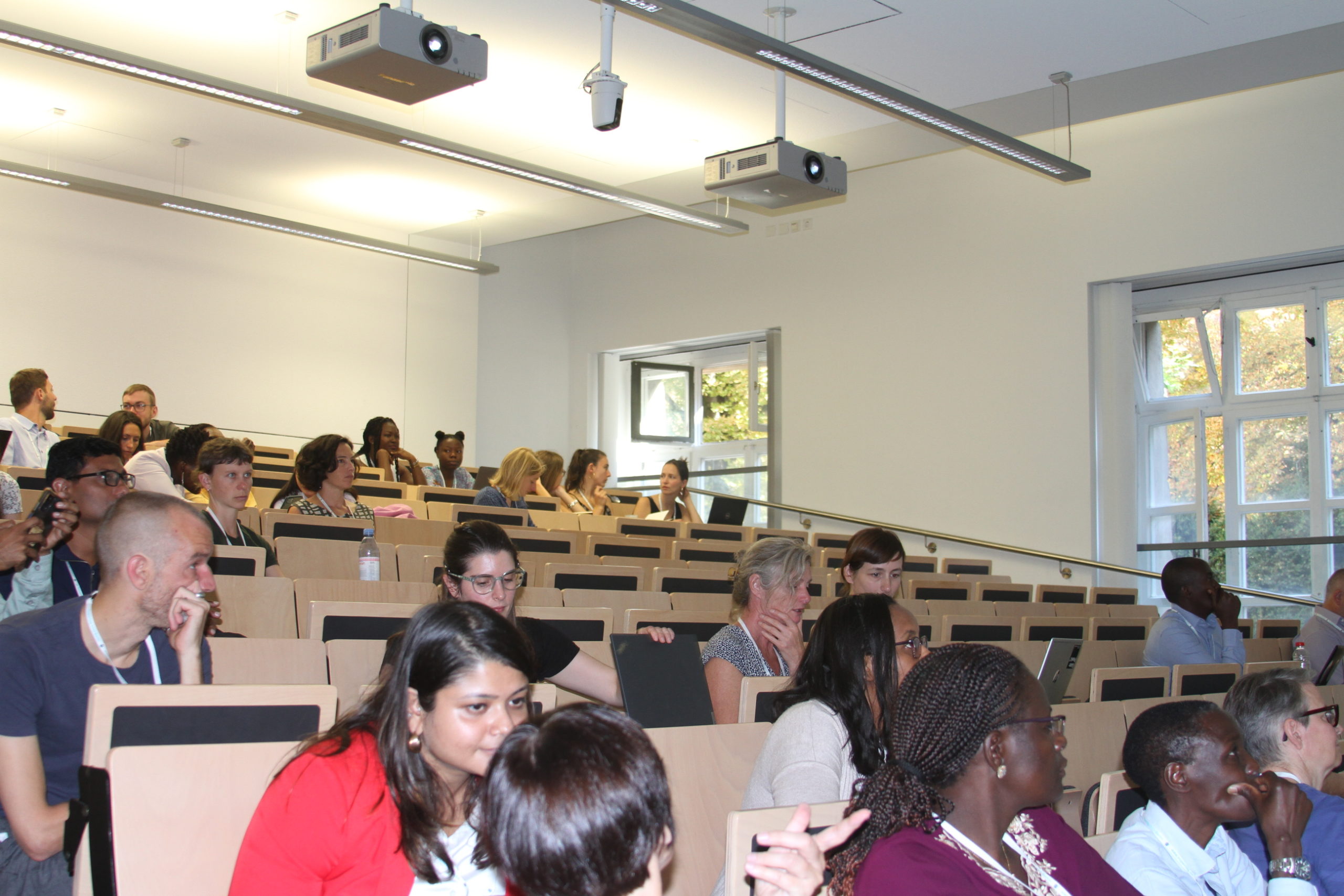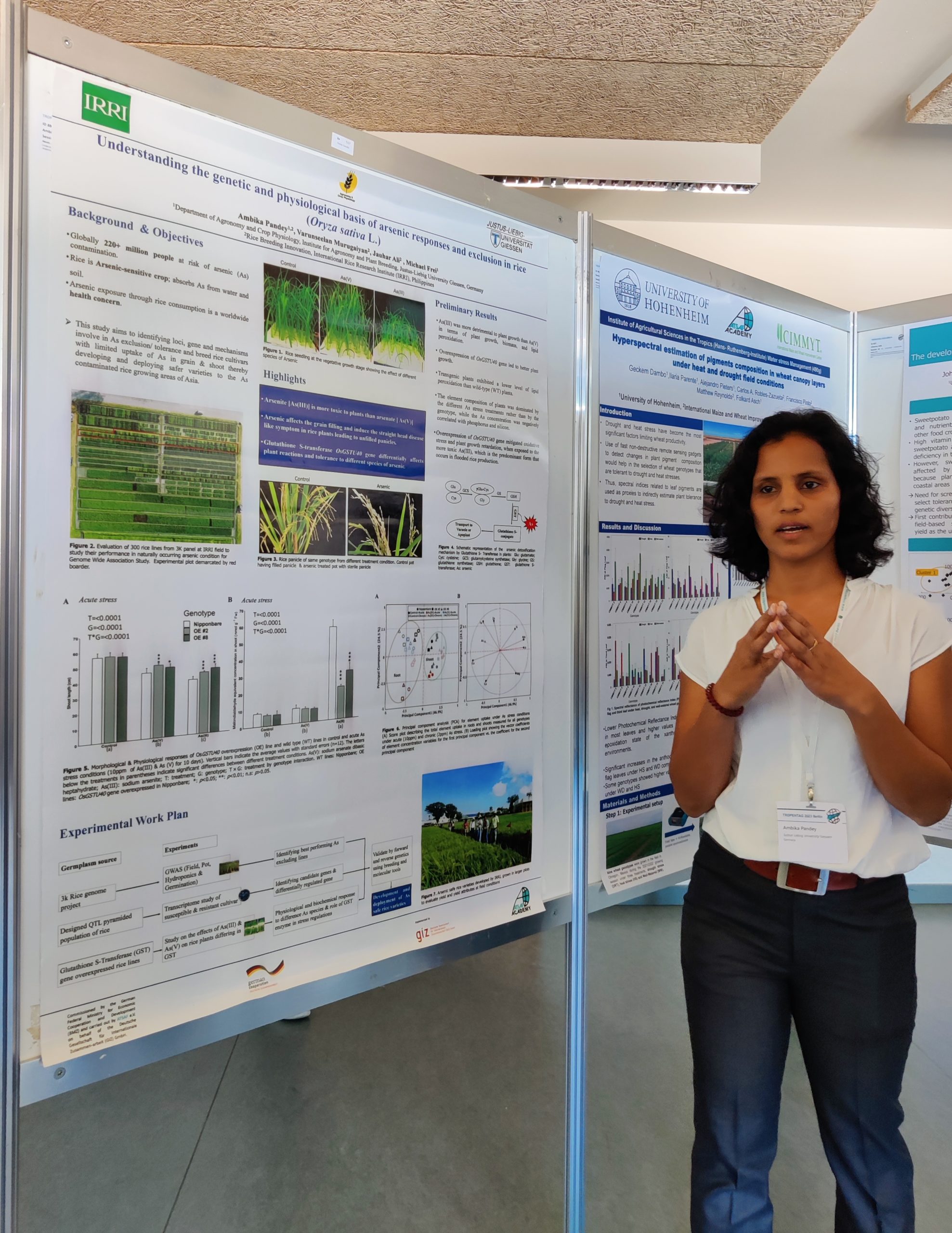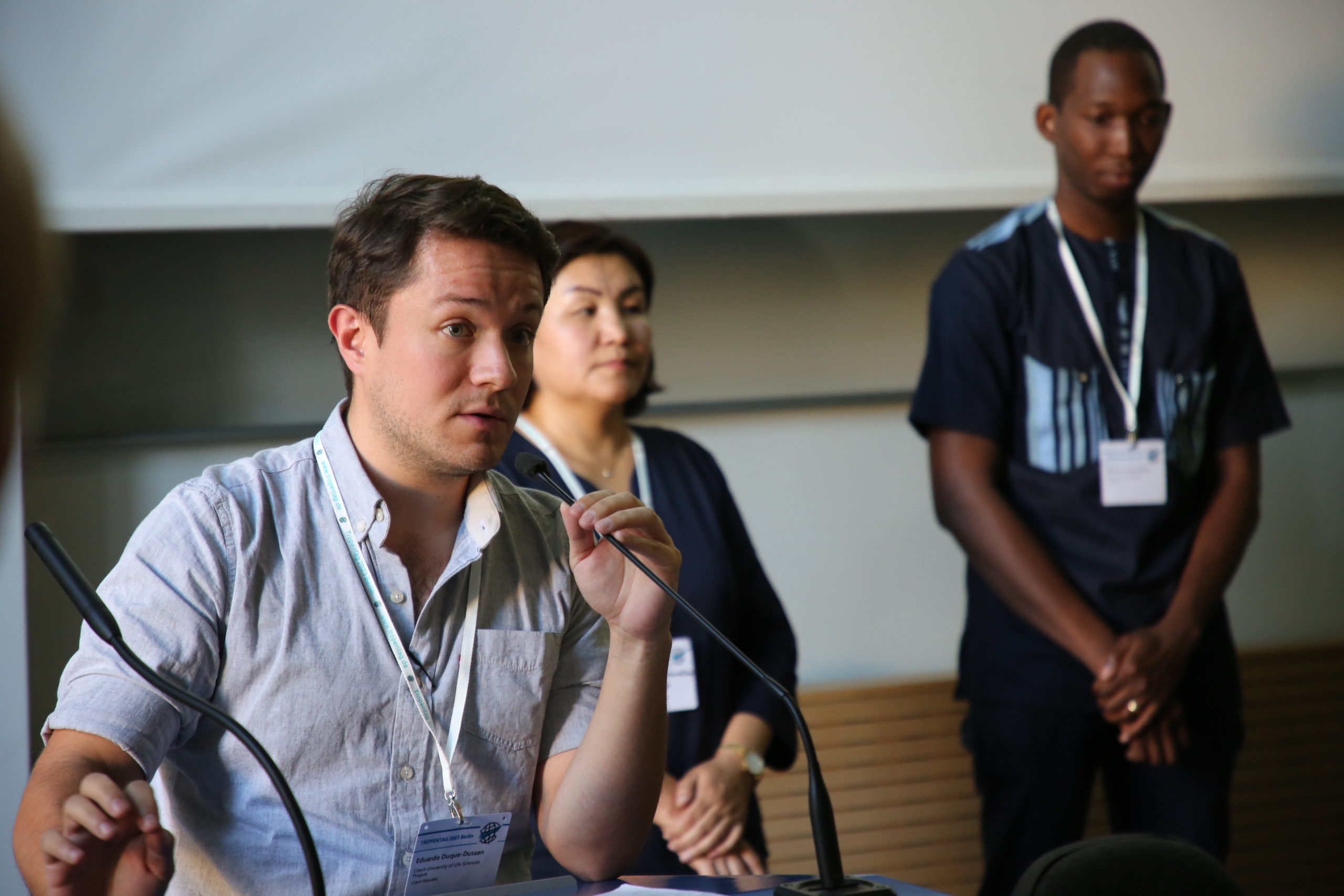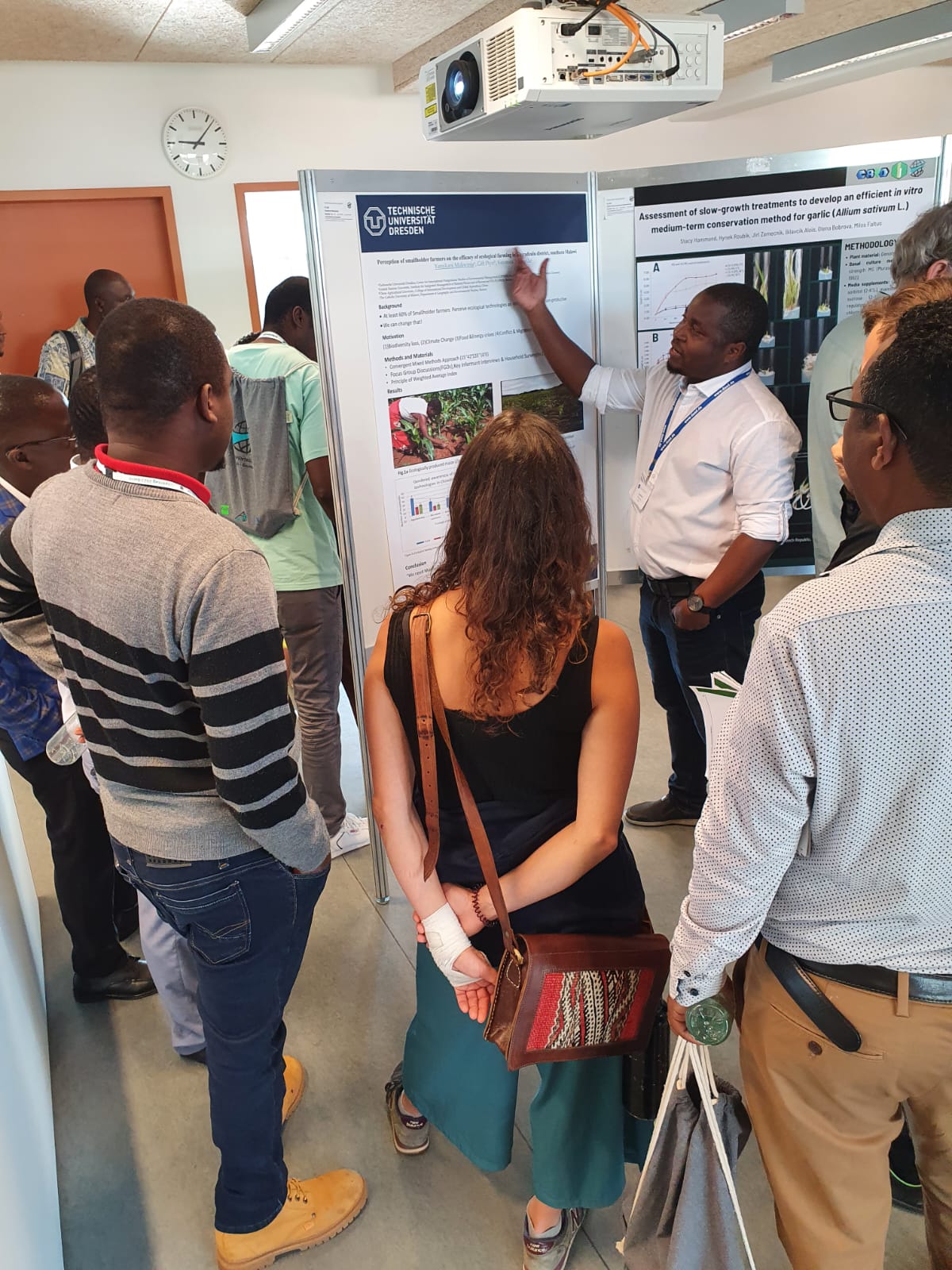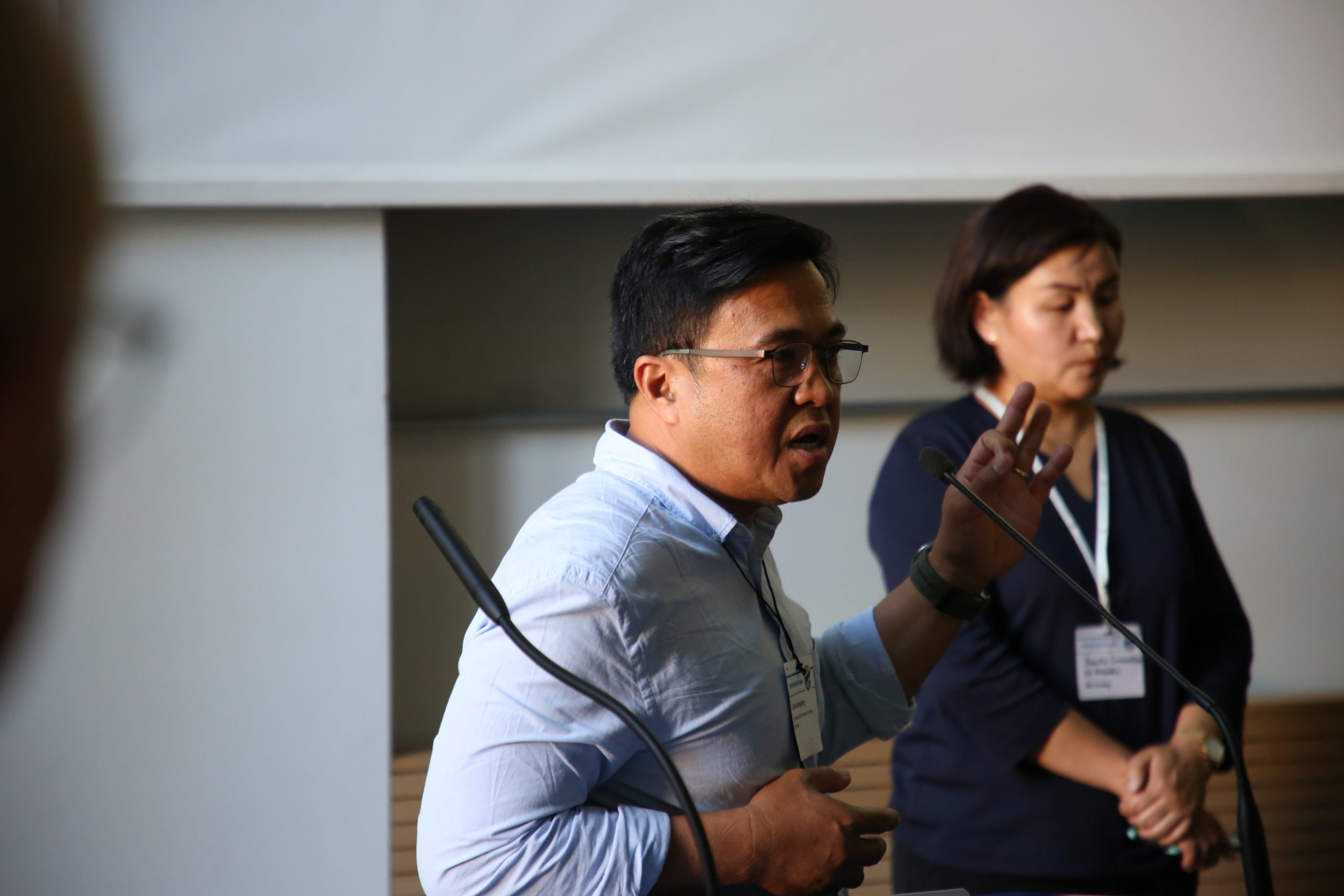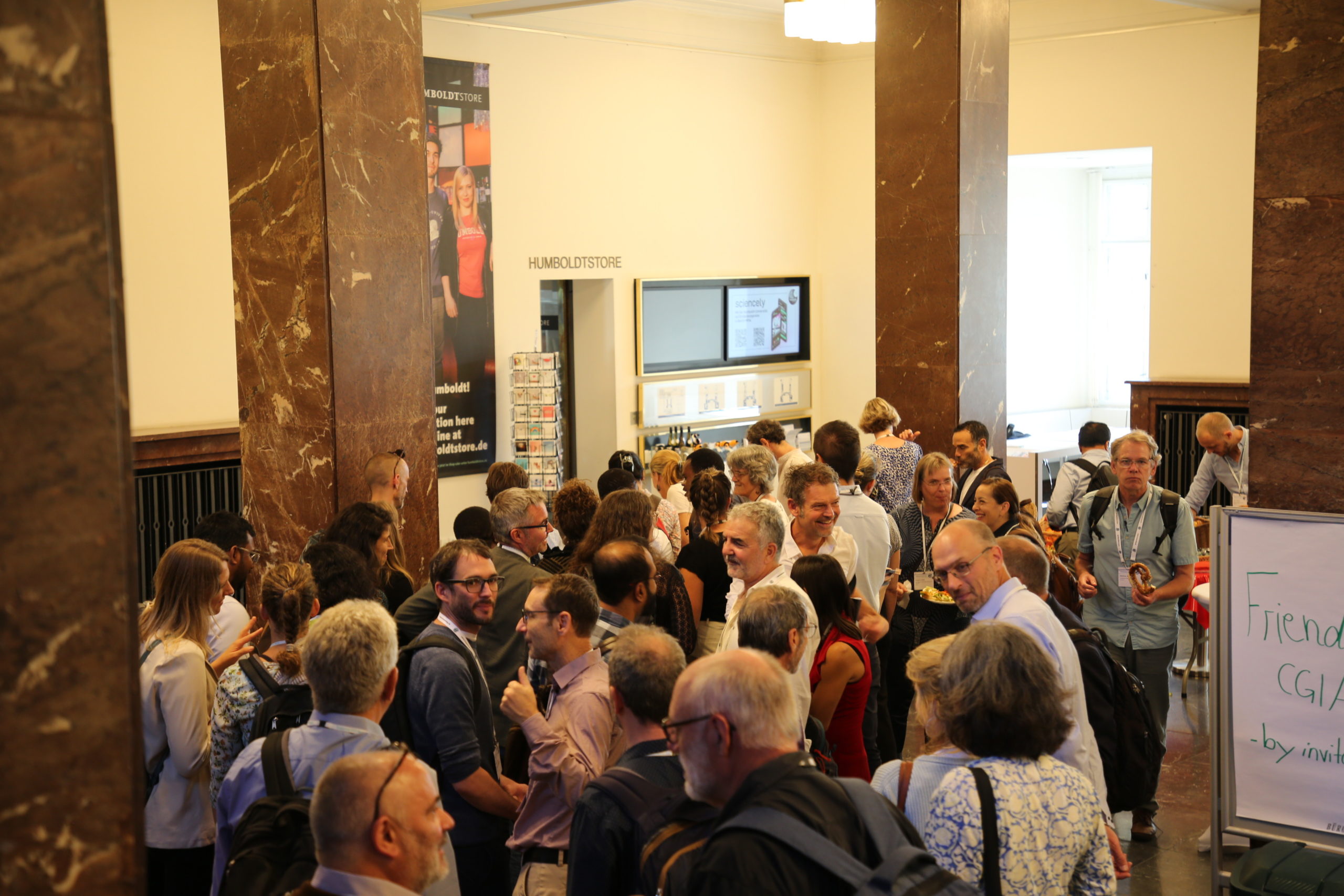During the BMEL session, an expert panel engaged in a discussion covering the numerous dimensions and research prerequisites of a rights-based approach toward equitable food systems. It also featured Project NaviNut, coordinated by DITSL (German
The BMZ-GIZ-CGIAR session initiates a discussion on the potential of Payments for Ecosystem Services (PES) schemes to enhance the economic well-being of smallholders while simultaneously promoting the desired environmental outcomes. Speakers share valuable insights from various PES implementations across Africa, Latin America, and Asia, shedding light on the potential trajectory of future PES schemes.
Through a series of engaging presentations and a thought-provoking panel discussion, researchers from various institutions showcase results of collaborative projects centered around sustainable development. These initiatives are supported by Germany’s Federal Ministry of Education and Research (BMBF) and the Project Management Agency (DLR-PT), in line with BMBF’s mission to foster stronger ties with non-EU Eastern European, South Caucasus, and Central Asian nations.
Visitors who approach the student reporters by themself to suggest interesting content to report about are always highly appreciated – especially when it is as interesting as the projects of Agrecol, a working group that
Ms. Kushala Witharanage from the University of Hohenheim, Germany presented preliminary findings of her master’s thesis at Tropentag 2023. She focuses on the impacts of gender-caste within organic cotton farming in India. Let’s discover more!
Abiotic stresses are inorganic factors, such as high temperature, saline conditions, water stress, and metal toxicity, affecting crops. They result in negative impacts on plant growth, yield, nutritional and safety parameters. How can we deal
Eduardo Duque Dussán, PhD student at the Czech University of Life Sciences in Prague, presented his study on developing a new hybrid system to dry coffee beans. Colombia’s coffee production is the third highest in
As the Tropentag 2023 conference approached its climax, participants had the opportunity to browse posters and listen to several oral presentations from different scientists across the world. The projects unveiled a plethora of intriguing results
We often communicate in our own ways – humans say “hello,” cats meow, and dogs bark. But have you ever wondered how insects “talk”? At the University of Kassel, a PhD student working with CGIAR’s IRRI explores this intriguing question using science. What’s even more intriguing is that they used high-tech methods to eavesdrop on insects! While we don’t know if the insects granted their consent for this technological eavesdropping, we’re certainly curious about what these tiny rice storage insects have to say.
This year more than 150 participants were invited to a “Friends of CGIAR Event” at the Tropentag Conference in Berlin. The event was hosted by the Fund for International Agricultural Research (FIA) together with ATSAF

